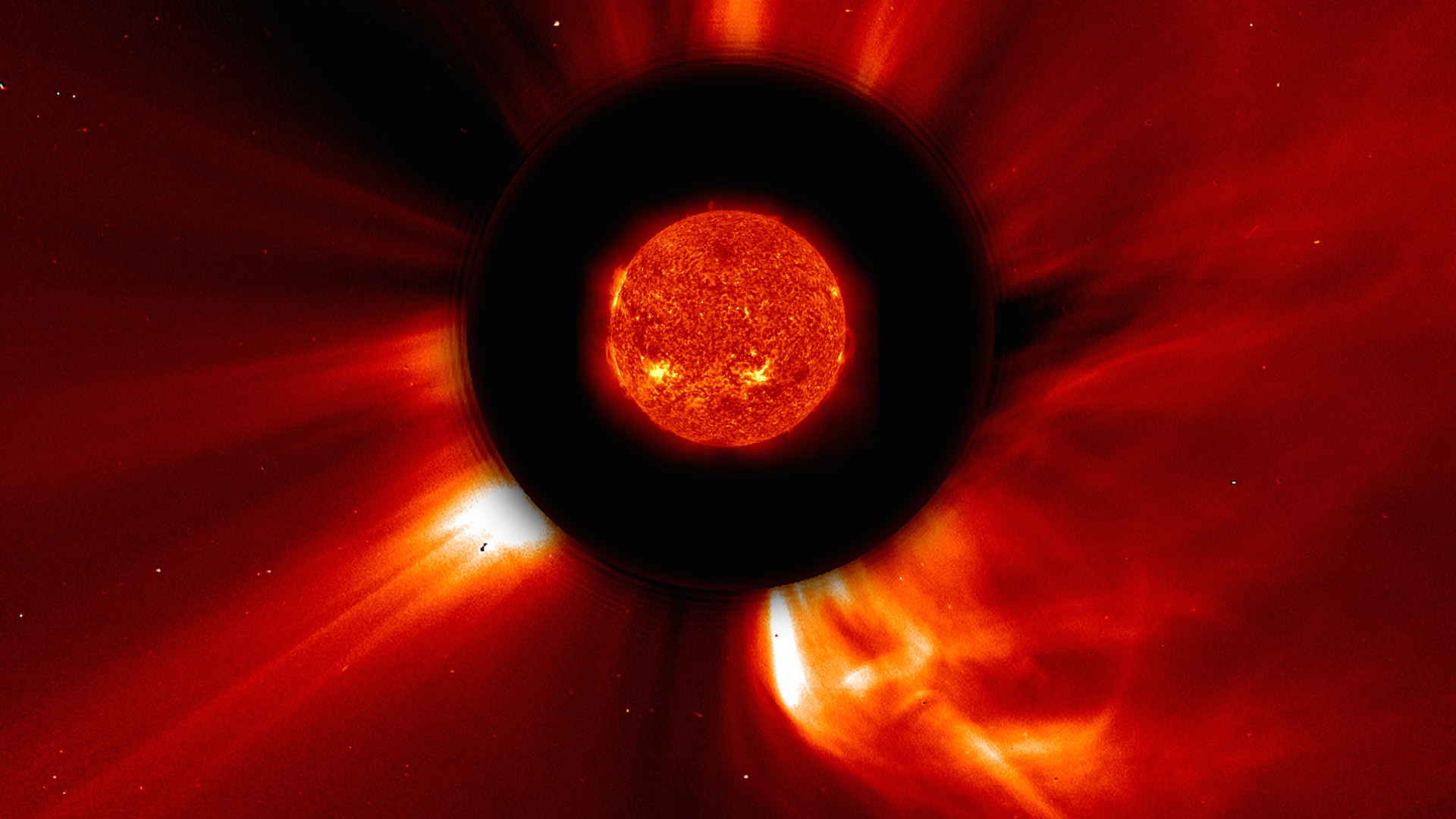The Storm That Missed Earth

The big solar storm of 2012 was one for the record books.
On July 23, 2012, a massive cloud of solar material erupted off the sun's right side, zooming out into space and passing one of NASA's twin STEREO spacecraft along the way. Scientists clocked this giant cloud, known as a coronal mass ejection, or CME, as traveling over 1,800 miles per second as it left the sun. This was the fastest CME ever observed by STEREO. Luckily, it was moving in a direction safely away from Earth. The harshest space weather can have strong effects on the magnetic system surrounding our planet, which in turn can affect satellites and interrupt GPS and radio communications. At its worst, rapidly changing magnetic field lines around Earth can induce electric surges in the power utility grids on the ground. Using observations from multiple NASA spacecraft, scientists reconstructed the full shape and expansion of the CME in a computer model. They learned that an earlier, smaller CME helped clear the path for the larger event, thus contributing to its unusual speed. Watch the video to learn more.
Explore how NASA observatories worked together to help scientists track the journey of a massive solar eruption in this video.

Images of the July 23, 2012, coronal mass ejection, or CME, captured by NASA's STEREO A and B spacecraft.

STEREO A tracked the CME (white) as it left the sun and traveled through the extended solar atmosphere (blue).

A typical CME travels at about 1 million mph. This model of the event shows the CME (red) speeding in the direction of STEREO A at 6.7 million mph.
For More Information
See NASA.gov
Credits
Please give credit for this item to:
NASA's Goddard Space Flight Center
-
Animators
- Tom Bridgman (Global Science and Technology, Inc.)
- Scott Wiessinger (USRA)
-
Video editor
- Scott Wiessinger (USRA)
-
Narrator
- Erin McKinley (OSU)
-
Producer
- Scott Wiessinger (USRA)
-
Writer
- Karen Fox (ADNET Systems, Inc.)
-
Narration
- Scott Wiessinger (USRA)
Release date
This page was originally published on Thursday, February 4, 2016.
This page was last updated on Wednesday, May 3, 2023 at 1:48 PM EDT.

